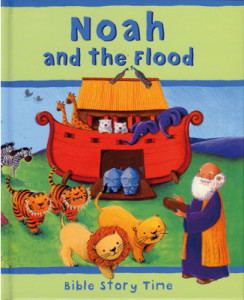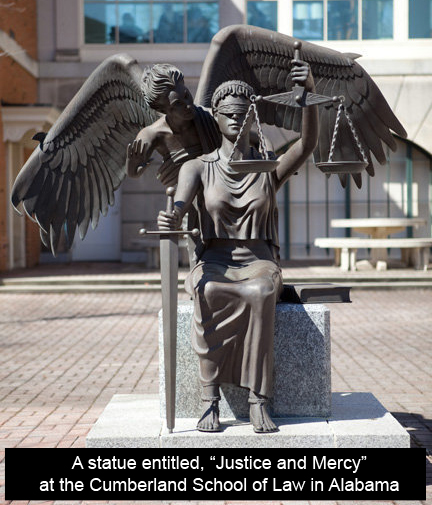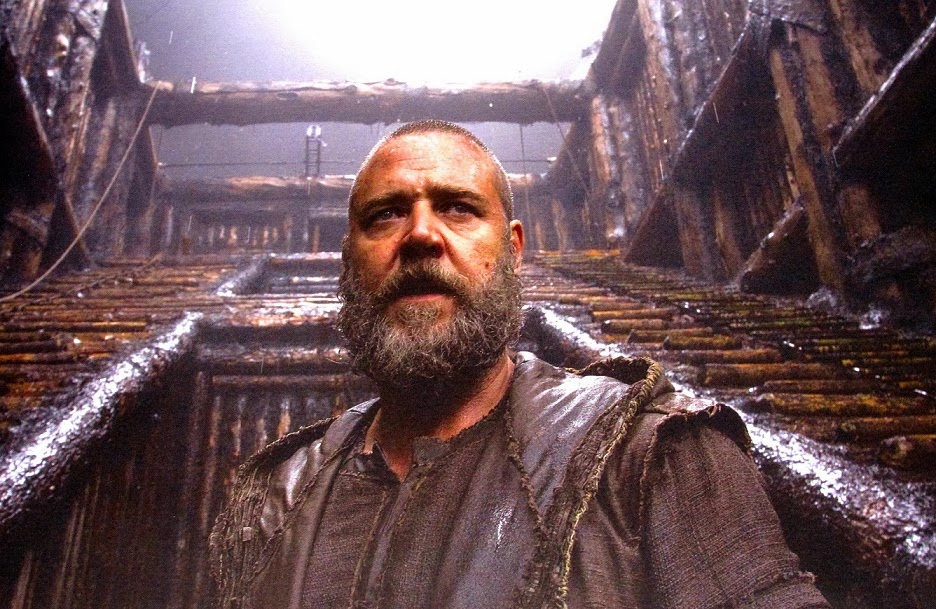Jesus’ review of “Noah”
There’s lots of movie reviews about the new film “Noah” by director, Darren Aronofsky. Some praise it, some can it, some grieve that it’s not a close enough depiction of the actual Bible story, and some have even said that the film is “the least biblical biblical film ever made”. Actually, that last quote is from the director, Darren Aronofsky himself (see here), so I don’t know what some Christians are getting so offended by. It’s not a biblical film. End of debate. The film has even been released by Paramount with the following clarifying statement:
“The film is inspired by the story of Noah. While artistic license has been taken, we believe that this film is true to the essence, values, and integrity of a story that is a cornerstone of faith for millions of people worldwide. The biblical story of Noah can be found in the book of Genesis.”
 Well, I think it’s maybe a bit of a stretch to say the story of Noah is a “cornerstone of faith”, but at least they point to where you can actually read the biblical account.
Well, I think it’s maybe a bit of a stretch to say the story of Noah is a “cornerstone of faith”, but at least they point to where you can actually read the biblical account.
Some people debate whether the story of Noah is true history or just a fable. Whether it can be adapted with rock monsters, or whether it is just totally irrelevant for modern audiences. What interests me, as a follower of Jesus, is whether Jesus has anything to say on the topic.
You might not worship Jesus as I do, but most people have a general respect for Jesus and his teaching. Christians are criticised if they ignore things that Jesus clearly taught on, like caring for the poor, and they are also criticised if they focus too much on topics that Jesus didn’t specifically talk about, like homosexuality. And rightly so, I say. Jesus’ teaching matters, and if he taught on something clearly, it should be acknowledged as a core part of Christianity.
Now, Jesus didn’t give a movie review of Aronofsky’s film, but it may surprise you that he did give a commentary on the source material. In both the gospel of Matthew and the gospel of Luke it is recorded that Jesus referred to the story of Noah and taught how we should apply it to our own lives. Aronofsky, said in an interview with MTV (see here) that the biblical story of Noah is “the first apocalypse story – it’s about the end of the world” and Jesus picks up on this exact theme. When Jesus reviewed Noah, he uses it as an analogy of the last apocalypse story – the actual end of the world – referring to his Second Coming.
Now, if you have never read the actual original story of Noah, you should probably read it before you hear Jesus’ review of it. It’s not that long and you can find it in Genesis 6-9. But if you are familiar with it, let’s read Jesus’ teaching from the gospel of Matthew (you can find the same account in Luke 17:22-36).
“But about that day or hour no one knows, not even the angels in heaven, nor the Son, but only the Father. As it was in the days of Noah, so it will be at the coming of the Son of Man. For in the days before the flood, people were eating and drinking, marrying and giving in marriage, up to the day Noah entered the ark; and they knew nothing about what would happen until the flood came and took them all away. That is how it will be at the coming of the Son of Man. Two men will be in the field; one will be taken and the other left. Two women will be grinding with a hand mill; one will be taken and the other left. Therefore keep watch, because you do not know on what day your Lord will come.” (Matthew 24:36-42)
Now, for a bit of context, this passage fits in a larger section where Jesus is teaching about the “coming of the Son of Man”. This is referring to the idea that  some time after his death, resurrection and ascension, he will return as judge and saviour of the world. If the idea of the Second Coming of Jesus or “Judgement Day” is new to you, then you might want to read other places in the Bible that talk about it (like the whole of Matthew 24-25, or much of the Book of Revelation, or even the end of the Book of Daniel in the Old Testament) Hebrews 9:28 sums up the first and second coming of Christ very nicely I think: “Christ was sacrificed once to take away the sins of many; and he will appear a second time, not to bear sin, but to bring salvation to those who are waiting for him.”
some time after his death, resurrection and ascension, he will return as judge and saviour of the world. If the idea of the Second Coming of Jesus or “Judgement Day” is new to you, then you might want to read other places in the Bible that talk about it (like the whole of Matthew 24-25, or much of the Book of Revelation, or even the end of the Book of Daniel in the Old Testament) Hebrews 9:28 sums up the first and second coming of Christ very nicely I think: “Christ was sacrificed once to take away the sins of many; and he will appear a second time, not to bear sin, but to bring salvation to those who are waiting for him.”
So if Jesus is teaching about the “Second Coming”, why does he talk about the story of Noah? What do they have in common and what aspects of the Noah story does Jesus apply to us as relevant for our lives? He says in verse 37, “As it was in the days of Noah, so it will be at the coming of the Son of Man.” So basically, he uses it as a simile. It’s a sermon illustration. Jesus is saying, experiencing his Second Coming will be like experiencing Noah’s flood. But in what way? Well, Jesus mentions 3 aspects:
1. It will be unexpected.
That seems to be Jesus’ main point. He stressed that only God the Father knows when the Second Coming will happen and concludes with the warning to “keep watch because you do not know on what day your Lord will come”. The story of Noah is used by Jesus as an analogy of this. People were just going about their daily lives (eating, drinking, marrying etc.) and were completely unprepared for the flood to come. In the verse after the passage above, Jesus uses the analogy of a thief coming to rob a house to make the same point. And what is the point? Don’t be like them and be unprepared. You won’t know when it’s going to come, so make sure you are ready for Jesus’ Second Coming. Everyone around you may be unprepared, but don’t you be.
2. Some will be taken away for judgement.
Jesus isn’t in any way afraid or embarrassed to talk about an ultimate final judgement. The idea that God will one day separate all of mankind into two groups – one to live with God forever and one to be separated from God forever – is a reality that is spoken throughout the Bible, both in the Old and New Testament. Anyone who wishes to engage with Jesus’ teaching (and especially anyone who calls themselves a follower of Jesus) must engage with the fact that Jesus taught very clearly about Judgement Day. He spoke about hell. It’s unpleasant. It’s unfortunate. But you can’t argue that it’s un-Jesus. The most foolish thing to do would be to simply live your lives – eating, drinking and marrying – without engaging with this part of Jesus’ teaching. That would really miss Jesus’ point! Jesus uses the story of the flood that took some away to point us to a future event that will also take some away. Not all will be saved and Jesus is warning us to so that we might not be in that group.
3. Some will be left.
The other parallel to the story of Noah and the Second Coming is that not all will be taken away. Some will be left. Some will be spared. Who are these people? Well, in the story of Noah Jesus says it’s those who “entered the ark”. This is quite similar imagery to the parable of the “Ten Virgins” that Jesus tells in the very next chapter (you can read it in Matthew 25:1-13). In both this parable and the story of Noah, those who are prepared go inside something and those who are unprepared are stuck outside the door. Jesus links both of these as analogies of his Second Coming. In the parable of the Ten Virgins, Jesus is represented by the returning Bridegroom. In the Noah story, who is Jesus? Is Jesus saying he is like Noah, ushering people into the place of safety in preparation for the coming judgement? Or is Jesus saying he is the ark itself, and that only in him are we protected from being taken away? Either way, he uses the story of Noah to point to himself as the one who can bring salvation.
 In his MTV interview, Darren Aronofsky said of his film, “It’s about justice. And over the course of the film, mercy and grace are learned.” Now, I know as a staunch Atheist he has taken a lot of liberties with the text and probably doesn’t care what Jesus thinks about the message of the story of Noah, but I think the above quote is pretty on the money. Both the story of Noah and the Second Coming are not simply about judgement and justice. They are about mercy and grace as well. That is what the Christian gospel proclaims. That is why Jesus came. That is what we see in the crucifixion of Jesus. Justice as God condemns sin in the sacrifice of Jesus, and mercy as Jesus dies in our place and we are offered forgiveness.
In his MTV interview, Darren Aronofsky said of his film, “It’s about justice. And over the course of the film, mercy and grace are learned.” Now, I know as a staunch Atheist he has taken a lot of liberties with the text and probably doesn’t care what Jesus thinks about the message of the story of Noah, but I think the above quote is pretty on the money. Both the story of Noah and the Second Coming are not simply about judgement and justice. They are about mercy and grace as well. That is what the Christian gospel proclaims. That is why Jesus came. That is what we see in the crucifixion of Jesus. Justice as God condemns sin in the sacrifice of Jesus, and mercy as Jesus dies in our place and we are offered forgiveness.
I might be seeing Aronofsky’s interpretation of Noah later this week. If you want a review of it, there are tons on YouTube (here’s one I like). But in the end, I’m more interested in Jesus’ interpretation of Noah. Jesus’ review is that the biblical story of Noah is an action-packed, dramatic morality tale that also has a redemptive theme and makes relevant commentary for a modern audience as to how they should live and what their future may hold.
I think Jesus would give the biblical story 5 Stars.
(2187)

